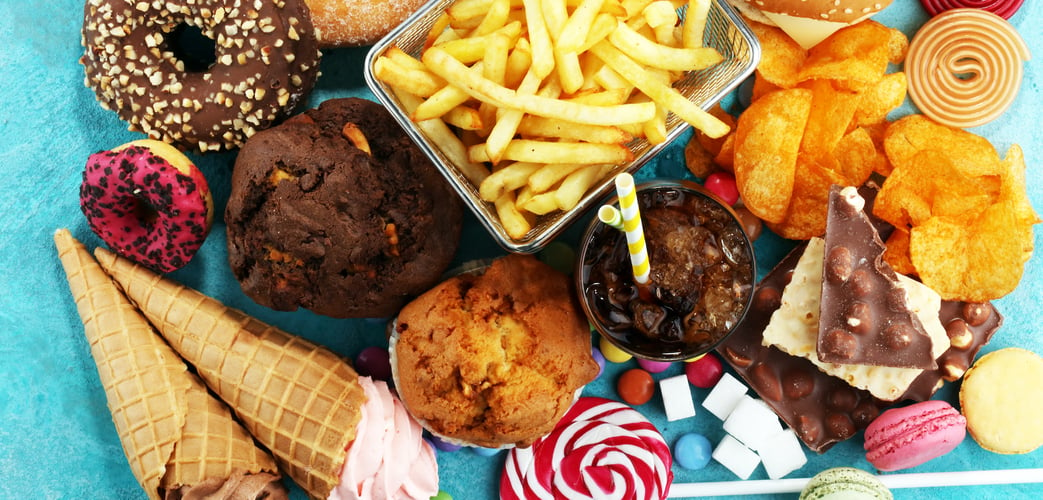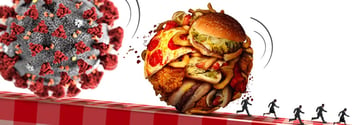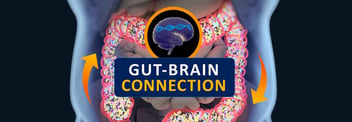Are You Stress Eating the Wrong Foods?
- Home
- Blog

Reader, we are now over 18 months into the pandemic. And while many of us wished COVID would be a memory by now, the virus is still very much at the forefront of our lives, impacting our day-to-day routines as well as our long-term plans. How are you coping? Or perhaps I should ask… are the things you’re turning to for solace really easing your stress?
We all know that in times of stress, it is important to nourish ourselves as best we can. Unfortunately, we humans tend to turn to guilty pleasures for comfort rather than pursue healthy habits. Ironically, these guilty pleasures can make us feel worse than when we started.
For some, a stressed-out situation may lead to the purchase of a pack of cigarettes. But for many, they lead to an inhaled bag of chips, an empty gallon of ice cream in the trash, or cardboard pizza boxes filling up the recycling bin.
Stress eating may seem like a comfort in the moment—but in the long term, it can lead to significant negative health outcomes. According to one survey, 61% of respondents experienced an undesired weight change since the start of the pandemic, with 42% of those gaining an average of 29 pounds. Why do so many of us turn to these not-so-sustainable comforts in times of stress… and how can we start to make healthier choices?
The Origins of Stress Eating
Our collective reach for the treats in our quarantine kitchens is a side effect of our body’s biological mechanisms for handling stress. When under stress, our brain releases cortisol into our bloodstream (check out these prior blogs to read about how certain gene variants can lead to an increased stress response.)
Early studies have demonstrated that individuals who experience greater cortisol levels ate more foods with high-sugar and high-fat content—and reported increased levels of snacking. In other words: the more stress we feel, the more we eat. Unfortunately, in today’s world, if we regularly overeat rich comfort foods, we quickly gain weight, which can cause undue stress on our biological processes and lead to worsened mental health outcomes over time.
In Times of Stress, Your Gut Bugs Need Comforting Too!
If you’ve found yourself eating more than usual during the pandemic, you’re not alone. Luckily, our biology—and our microbiome—provide some easy answers about how to turn this pattern around.
You see, your microbiome has a direct line of communication with your brain called the Gut-Brain Axis. An unhealthy gut sends significantly different messages to the 32 trillion cells in our body than a gut that is well fed. Those messages can damage our cells and lead to anxiety, depression, inflammation, and even memory loss. “Bad gut bugs” can even impair immune system functioning—which can make living through COVID even more fraught.
If you want to stave off these negative impacts, instead of comforting your mind with food, consider comforting those gut bugs that keep you healthy in the long term!
Stress-Free Eating for a Healthy Mind
It may sound crazy to suggest eating veggies and other healthy foods could ever replace your comfort food of choice, but believe me: your body and your brain will thank you if you do.
The easiest way to comfort your gut bugs in times of stress is to feed them prebiotics like onions, garlic, bananas, and honey, and to bolster their numbers by supplementing your diet with a probiotic. You may be pleasantly surprised at just how much of a difference these foods can make, and find comfort in knowing you are boosting your immune system’s ability to fight off the dreaded coronavirus should you inadvertently become exposed.
.png?width=144&height=144&name=Untitled%20design%20(34).png)



